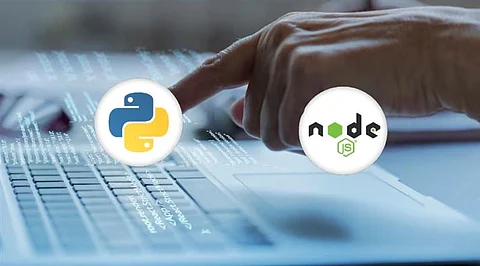

Choosing between Node.js and Python for yacht rental management software impacts your platform's performance, scalability, and long-term success. Node.js excels in real-time booking systems and high-traffic scenarios, while Python dominates in data analytics and AI-powered features that modern yacht rental businesses increasingly demand.
The yacht management software market will reach $2.5 billion by 2031, growing at 14.8% annually. This explosive growth means your technology decisions today shape your competitive position tomorrow. According to the software team of yachtrentaluae.ae, Yacht rental platforms face unique technical challenges:
Real-time availability updates across multiple booking channels
Dynamic pricing algorithms that adjust based on weather, demand, and seasonality
Integration requirements with marina management systems, payment processors, and weather APIs
Mobile-first user experience for both yacht owners and renters
Compliance tracking for maritime regulations and insurance requirements
Your backend technology choice affects every aspect of these operations.
Node.js delivers exceptional performance for yacht rental platforms through its event-driven architecture. The V8 JavaScript engine processes booking requests faster than traditional server technologies, which is crucial when multiple customers compete for the same yacht slot.
Real-world impact: Expedia, Skyscanner, and TripAdvisor use Node.js for their booking engines. These platforms handle millions of simultaneous searches and bookings - exactly what successful yacht rental platforms require.
Node.js handles thousands of concurrent connections with minimal server overhead. For yacht rental businesses, this means:
Booking spikes during peak season don't crash your system
Real-time notifications reach yacht owners and renters instantly
API integrations with weather services, payment processors, and marina systems run smoothly
Microservices architecture allows you to scale individual features independently
A single codebase for website, interactive web, and mobile applications reduces development time
Real-time chat features between yacht owners and renters
Live tracking of yacht locations and availability
Instant payment processing with minimal latency
Dynamic map updates showing available yachts in real-time
Node.js struggles with CPU-intensive operations. This creates challenges for:
Complex pricing calculations involving multiple variables
Image processing for yacht photo uploads and optimization
Advanced analytics requiring heavy computational work
Backup and data export operations that process large datasets
The "callback hell" problem can make maintenance difficult as your platform grows. Your development team needs experience managing asynchronous code complexity.
Python is the dominant programming language in data science and machine learning applications. For yacht rental businesses, this translates to:
Predictive pricing models that maximize revenue
Customer behavior analysis for personalized recommendations
Demand forecasting for inventory planning
Fraud detection in booking and payment processes
Automated customer support through intelligent chatbots
Python's readable syntax accelerates development speed. Your team can:
Build features faster with less code complexity
Debug issues quickly due to Python's clear error messages
Integrate third-party services easily with extensive library support
Onboard new developers rapidly due to Python's learning curve
Many marina management systems, accounting software, and enterprise tools offer Python Application Programming Interfaces (APIs). This simplifies the integration of financial reports with accounting systems and marina dock management connections. It also simplifies insurance compliance reporting automation and scheduling.
However, Python has some performance limitations. For instance, the execution speed lags behind Node-js significantly. So, for yacht rental platforms, this means slower booking confirmations during high-traffic periods, delayed real-time updates for availability changes, and reduced concurrent user capacity without additional server resources. The Global Interpreter Lock (GIL) prevents true multithreading, limiting your platform's ability to handle simultaneous booking requests efficiently.
Python excels when your yacht rental platform needs sophisticated data processing:
Node.js approach: Microservices architecture allows independent scaling of booking, payment, and notification services. Each service handles specific functions without affecting others.
Python approach: Monolithic applications work well initially but require architectural changes as you grow. Django and Flask frameworks support scaling but need careful planning.
Yacht rental businesses often expand to multiple regions. Your technology choice affects:
Database replication across different time zones
Regulatory compliance with local maritime laws
Currency and payment processing requirements
Multi-language support for international customers
Node.js handles geographic distribution more effectively through its event-driven architecture, whereas Python requires more infrastructure planning.
Your yacht rental platform's success depends on aligning technology choices with business priorities. Select Node.js when your focus centers on real-time booking and availability updates, high concurrent user capacity, mobile-first user experience, rapid feature deployment, and integration with modern web technologies.
Choose Python when your business emphasizes advanced analytics and pricing optimization, AI-powered customer recommendations, complex integrations with enterprise systems, long-term platform stability, and data-driven decision making.
Many successful yacht rental platforms adopt a hybrid approach, using Node.js for user-facing APIs that handle bookings and real-time updates while leveraging Python for backend analytics that process booking data and generate business insights. This dual-technology strategy requires a shared database layer to ensure data consistency across both systems.
While this approach requires more initial complexity, it offers maximum flexibility as your yacht rental business grows. It evolves, allowing you to capitalize on each technology's strengths without compromising on critical functionality.
